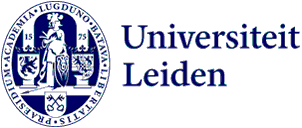Seminar
Cash transfer programs and perceptions of eligibility for assistance in post-conflict settings
- Date
- Wednesday 7 June 2023
- Time
- Address
-
Kamerlingh Onnes Building
Steenschuur 25
2311 ES Leiden - Room
- B035
The Social Citizenship and Migration research program would like to invite you to a seminar given by Zeynep Balcioglu.
Summary
The past decade has witnessed an unprecedented increase in the use of cash transfer programs (CTPs) by the humanitarian sector in post-conflict settings. CTPs are found to provide efficient and effective solutions to address the needs of populations affected by conflicts and emergencies and are promoted as a strong alternative to in-kind assistance. They are praised for multiple reasons such as cost-effectiveness, causing less distortion in prices, and most importantly for their agency-oriented modality.
Alongside all the advantages they present, CTPs suffer from a challenge that is inherent to every distributive attempt. A targeting dilemma that begets the question: who is to be reached and why? Conventional research that examines this dilemma studies program effectiveness through an output-oriented perspective and only occasionally includes refugees’ experiences and perspectives. However, although CTPs use state-of-the-art statistical methods that are fastidious in identifying poor from non-poor, communities in the context of implementation may find it difficult to discern why one family receives assistance while another family that looks very similar to the receiving family does not. Such misunderstanding is more common for programs that target refugees because first refugee communities are in general more homogenously poor compared to host communities, and second most CTPs implemented in post-conflict settings employ centralized methodologies whereby the eligibility criteria for the selection of beneficiaries are established in a top-down fashion.
In this paper, we use a discreet conjoint experiment and focus groups to examine how and why refugees’ perceptions of eligibility for cash assistance converge with and diverge from the perceptions of humanitarian staff and the actual econometric formula used for the CTP implemented by the UNHCR for refugees in Lebanon. Studies report that discontent over targeting among recipients may lead to unintended negative consequences such increase in social tensions between recipients and non-recipients, and feelings of resentment among non-beneficiaries. We believe that this paper contributes to the literature by providing a better understanding of how and why discord between the targeting methodology, eligibility criteria used, and beneficiaries’ understanding of both happens. Our findings also have policy implications as they can guide policymakers and implementers about anticipating unintended consequences of CTPs related to the implementation context, responding to grievances of the beneficiary communities, and addressing the latent problems related to the transparency of the programs.
About the program
The Social Citizenship and Migration program is one of the multidisciplinary stimulation programs at Leiden University. In the SC&M program, Leiden experts in public administration, law, economics, humanities and social and behavioural sciences look together at the issue of migration. They combine their knowledge of migration in the past, social patterns and perceptions of migrants, and share their findings with other researchers, policymakers and society at large. Find more information here.
